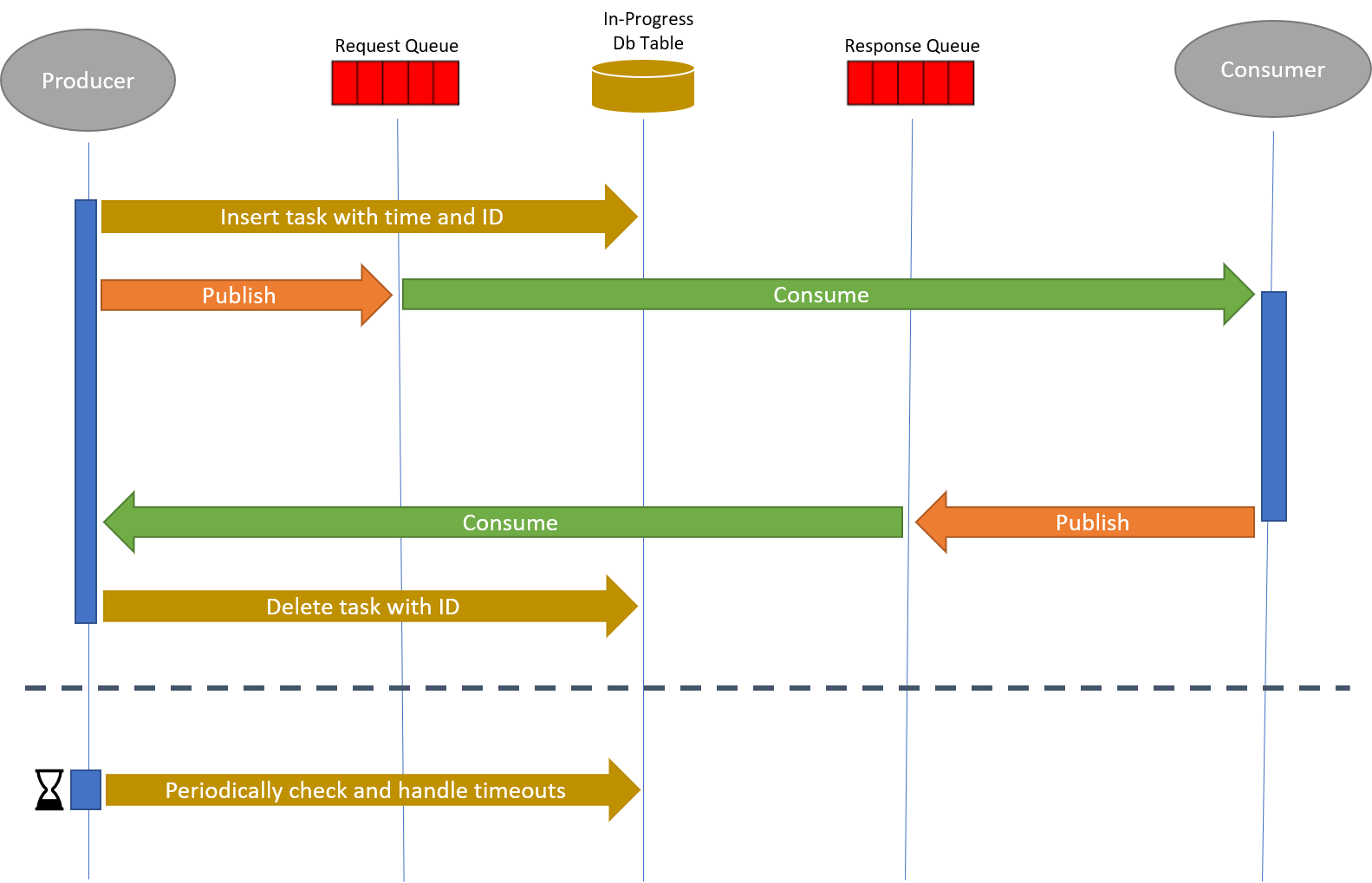I am using RabbitMQ to have worker processes encode video files. I would like to know when all of the files are complete - that is, when all of the worker processes have finished.
The only way I can think to do this is by using a database. When a video finishes encoding:
UPDATE videos SET status = 'complete' WHERE filename = 'foo.wmv'
-- etc etc etc as each worker finishes --
And then to check whether or not all of the videos have been encoded:
SELECT count(*) FROM videos WHERE status != 'complete'
But if I'm going to do this, then I feel like I am losing the benefit of RabbitMQ as a mechanism for multiple distributed worker processes, since I still have to manually maintain a database queue.
Is there a standard mechanism for RabbitMQ dependencies? That is, a way to say "wait for these 5 tasks to finish, and once they are done, then kick off a new task?"
I don't want to have a parent process add these tasks to a queue and then "wait" for each of them to return a "completed" status. Then I have to maintain a separate process for each group of videos, at which point I've lost the advantage of decoupled worker processes as compared to a single ThreadPool concept.
Am I asking for something which is impossible? Or, are there standard widely-adopted solutions to manage the overall state of tasks in a queue that I have missed?
Edit: after searching, I found this similar question: Getting result of a long running task with RabbitMQ
Are there any particular thoughts that people have about this?

